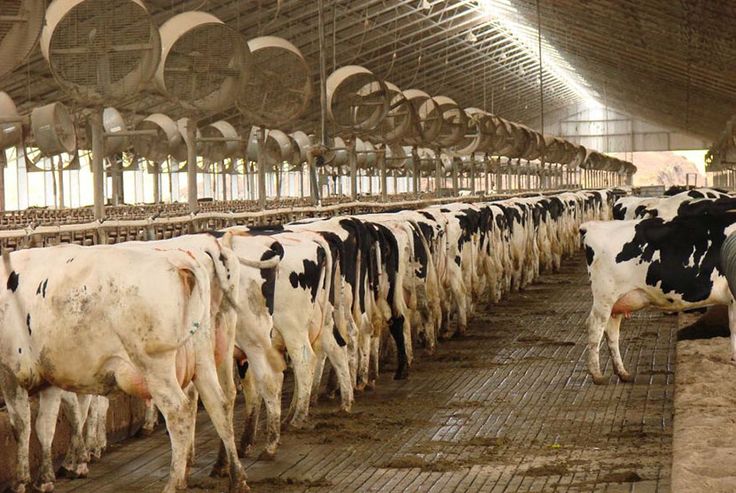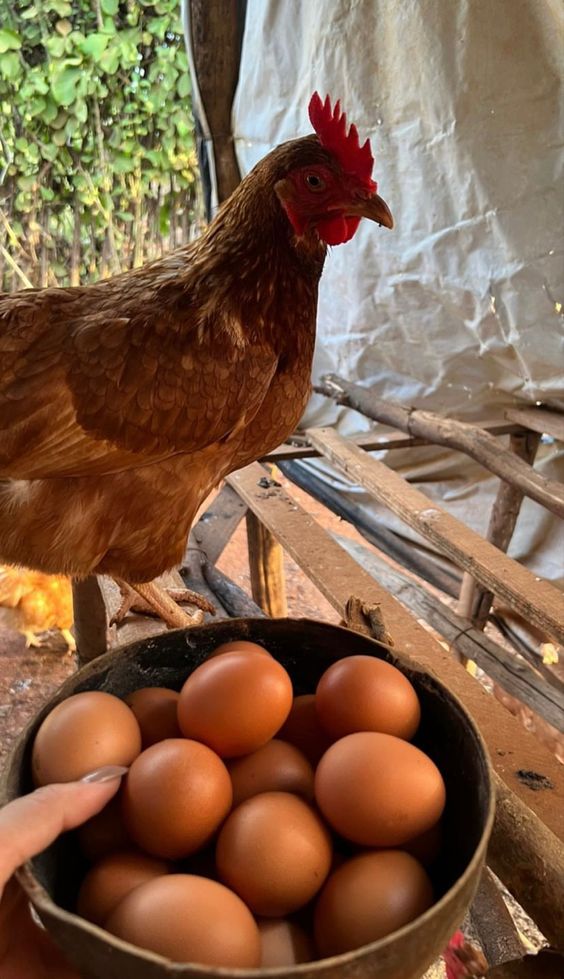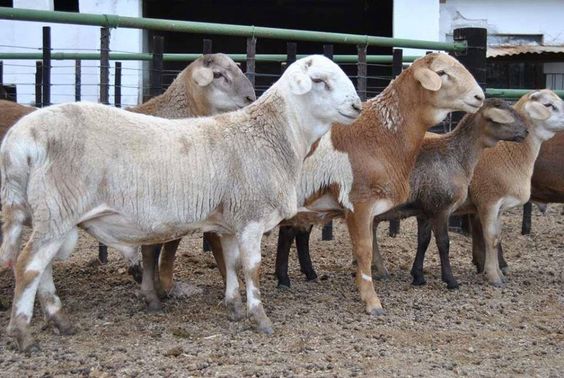Raising Healthy Cows: A Comprehensive Guide
Raising healthy cows is crucial for any successful dairy or beef operation. Healthy cows not only contribute to increased productivity and profitability but also ensure the well-being of the animals and the sustainability of the farming practice. This article will provide a thorough exploration of the key aspects of raising healthy cows, including their benefits, goals, and actionable strategies.
Raising healthy cows is fundamental to achieving a productive and sustainable farm. Healthy cows are more productive, produce higher-quality milk or beef, and are less susceptible to diseases. Furthermore, a focus on health can lead to better welfare for the animals and reduced costs related to veterinary care and medication.
Benefits of Raising Healthy Cows
Raising healthy cows offers numerous benefits for both farmers and the farming industry.
Increased Productivity is a key advantage. Healthy cows, whether dairy or beef, tend to be more productive. For dairy cows, good health translates into higher milk yields, which directly affects the farm’s profitability. For beef cows, maintaining good health supports better weight gain, improved meat quality, and more consistent production, which is essential for meeting market demands.
Improved Quality of both milk and meat is another significant benefit. Well-cared-for cows produce superior products, which can command higher prices in the market. High-quality milk has better fat content and fewer contaminants, while quality beef features better marbling and tenderness. This not only boosts farm revenue but also enhances customer satisfaction and loyalty.
Reduced Veterinary Costs is a substantial financial advantage of maintaining healthy cows.Raising Healthy Cows, Good husbandry practices, including proper nutrition, regular health checkups, and appropriate shelter, can prevent illnesses. This minimizes the need for costly veterinary interventions, medications, and treatments, thereby saving money in the long run.
Enhanced Longevity is another important aspect. Healthy cows have longer productive lives, meaning they remain in the herd for more years, which reduces the frequency and cost of replacements. Farmers can plan more effectively, focusing on long-term herd development.
Better Animal Welfare is a direct result of prioritizing cow health. By ensuring that cows live in environments that cater to their physical and psychological needs, farmers improve the animals’ overall well-being. Happy, stress-free cows are more productive and lead to a more ethical farming system.
sustainability is supported by maintaining healthy cows. These animals contribute to better soil health and reduced environmental impact, creating a more resilient and sustainable farming ecosystem.

Goals for Raising Healthy Cows
When raising healthy cows, setting clear goals is essential to ensure their well-being and optimize productivity.
Preventing Disease is a primary goal. To achieve this, farmers must implement strategies that help avoid common diseases and health issues. This includes regular vaccinations, parasite control measures, and maintaining a clean, hygienic environment to minimize the spread of infectious diseases. Disease prevention is not only vital for the cows’ health but also for reducing veterinary costs and minimizing production losses.
Promoting Optimal Nutrition is another key goal. Providing cows with a well-balanced diet is crucial for their health and productivity. Dairy cows require specific nutrients to support milk production, while beef cattle need diets that promote healthy weight gain and muscle development. Proper nutrition boosts immune function, increases energy levels, and ensures optimal growth, which leads to better milk yield or higher quality meat.
Ensuring Proper Housing is also essential for the welfare of cows. Adequate shelter protects them from extreme weather conditions like heat, cold, and rain, which can stress the animals and lower their productivity. Providing enough space for movement and rest is equally important, as it allows cows to maintain good physical condition, reducing stress and the risk of injury.
Monitoring Health Regularly is another critical goal. Regular health checks enable early detection of potential issues, allowing for quick intervention before problems escalate. By implementing a health monitoring system, farmers can track each cow’s condition, identify patterns, and respond proactively to any signs of illness, ensuring that the herd remains healthy and productive.
Implementing Good Management Practices ensures the long-term success of raising healthy cows.Raising Healthy Cows, This includes maintaining proper hygiene through regular cleaning, managing waste effectively to prevent contamination, and keeping detailed records of each cow’s health, productivity, and treatments. These practices ensure efficient farm operations and promote overall herd health.
Key Ideas for Raising Healthy Cows
Raising healthy cows requires a comprehensive approach, and key ideas should guide every aspect of their care.
Nutrition Management is fundamental to cow health. Developing a well-balanced diet ensures cows receive the necessary nutrients for optimal growth and productivity. Working with a nutritionist can help create customized feeding plans based on the cows’ specific needs. This diet should include an appropriate balance of forage, grains, and supplements to promote strong immune systems, healthy weight gain, and increased milk production.
Hygiene and Cleanliness are crucial for preventing diseases. Maintaining a clean environment by regularly cleaning feeding areas, bedding, and water sources helps reduce the risk of infections and ensures the overall health of the herd. Proper waste disposal is also essential in keeping the cows’ living spaces sanitary, minimizing the spread of harmful pathogens.
Vaccinations and Preventative Medicine are vital components of maintaining a healthy herd. Developing a vaccination schedule in consultation with a veterinarian can protect cows from common diseases, reducing outbreaks and costly treatments.Raising Healthy Cows,Raising Healthy Cows Alongside vaccinations, routine checkups and preventative treatments help ensure early detection and prevention of potential health issues.
Parasite Control is another key focus. Internal and external parasites can significantly affect cow health, leading to weight loss, decreased milk production, and other complications. Implementing a parasite control program, including regular deworming and monitoring, helps keep these parasites in check and ensures the herd’s well-being.
Comfort and Welfare are also critical. Providing cows with adequate space, proper bedding, and appropriate shelter ensures their comfort, reducing stress and improving overall productivity. Ensuring cows have comfortable living conditions can prevent many stress-related health issues.
Breeding Management is an important long-term strategy. Selective breeding helps improve the overall health, productivity, and genetic quality of the herd. Working with breeding specialists ensures cows are bred for traits that enhance both milk production and resistance to diseases.
Record Keeping is essential for tracking each cow’s health history, vaccination schedule, and productivity.Raising Healthy Cows, Maintaining detailed records helps farmers make informed decisions about nutrition, medical treatments, and breeding.
Training and Education are ongoing necessities. Keeping up with advancements in cow care and management through regular training helps ensure that best practices are being followed, contributing to healthier and more productive cows.Raising Healthy Cows, Continuous learning helps farm teams stay updated on new techniques, improving herd health and efficiency.

Suggested Topics for Further Exploration
There are numerous important topics for further exploration when it comes to raising healthy cows. Each of these topics can help farmers improve herd management, animal welfare, and overall productivity.
Disease Prevention Strategies offer a valuable area for research. Developing detailed guidelines on preventing common diseases, such as mastitis or bovine respiratory disease, can help farmers implement effective biosecurity measures and vaccination protocols. Exploring disease prevention not only improves cow health but also reduces costs associated with veterinary care.
Nutritional Requirements for Different Stages of Life is another critical topic. Cows have unique dietary needs at various life stages—from calves to lactating cows and mature adults. A closer look at these nutritional requirements can aid in creating more effective feeding plans tailored to maximize growth, milk production, and longevity.
Environmental Enrichment for Cows focuses on improving the living conditions of cows to promote better welfare and reduce stress. Environmental enrichment strategies, such as providing proper bedding, introducing social interaction, and offering appropriate space, are crucial for maintaining both physical and mental health in cows. Researching new techniques can lead to healthier, more content animals.
Innovations in Cattle Health Monitoring highlight emerging technologies that can revolutionize herd management. Wearable devices, automated health monitoring systems, and real-time data analysis allow farmers to monitor their cows’ health continuously. Exploring these innovations could lead to better early disease detection, improving treatment outcomes and herd productivity.
Economic Benefits of Preventative Health Care analyze the financial impact of proactive health measures. Preventative care, such as regular vaccinations and parasite control, can save farmers money compared to reactive treatments. Research into the long-term cost savings and increased productivity from maintaining a healthy herd will demonstrate the economic value of investing in cow health.
Sustainable Farming Practices offer insights into how raising healthy cows aligns with broader agricultural sustainability goals. Topics like reducing methane emissions, improving soil health, and minimizing resource consumption show how cow health contributes to a more sustainable farming system.
The Role of Genetics in Cow Health is an area that explores how selective breeding can improve cow productivity and resistance to diseases. Understanding how genetics influence overall health can lead to more informed breeding practices, enhancing both animal welfare and farm profitability.

Advantages of Raising Healthy Cows
Raising healthy cows is a multifaceted endeavor that requires attention to detail and a commitment to best practices in animal husbandry. By focusing on nutrition, hygiene, preventative medicine, and overall welfare, farmers can achieve higher productivity, better product quality, and improved sustainability. The benefits of raising healthy cows extend beyond the individual farm, contributing to the broader goals of ethical farming and environmental stewardship. Adopting these strategies will help ensure that your cows remain healthy and productive, ultimately leading to a more successful and sustainable farming operation.






